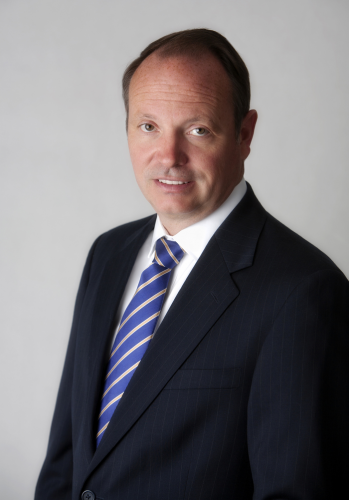In a World of Robo-Advisors, the Human Touch Can Still Make a Difference
Though lower fees and increased ease of use are attracting more and more people to try virtual “robo advisors,” with such a personal and intricate process as financial planning, can a computer really take the place of a human advisor?

Ogden,UT – August 30, 2017 /MM-LC/ —
Automation is nothing new and people used to robots and computers handling many aspects of their lives, including finances. But using an ATM is far different than relying on computer algorithms for investment and retirement funding advice which is exactly what many people are now doing through “robo advisors,” virtual financial advisors whose scope includes portfolio planning, asset allocation, and risk tolerance assessment, among other tools. Though lower fees and increased ease of use are attracting more and more people to try these robo advisors, with such a delicate and intricate process as financial planning, can a computer really take every aspect into account that a human advisor would?
“Robo advisors are a great shortcut and money-saver, that’s why there’s a push toward using them,” says Fred Randhahn, an accredited investment fiduciary (AIF) and principal of Upstream Investment Partners, a nationwide collective of independent financial advisors headquartered in Ogden, Utah. “The computer may have the advantage of mathematical precision, but a person can take feelings and other human factors into account. Sometimes those things can make a big difference in how a person invests and plans for retirement,” he says.
What are some of these influential factors? Things like life events in the life of the client or their family, or changes in risk tolerance due to extenuating circumstances are aspects that a virtual advisor might not be able to glean. “Computers have to rely on the information you input, and the information that has been programed into them, both of which are limited,” Randhahn notes. “A human advisor can ask questions, get to know a client and what’s important to them in a more nuanced and multi-faceted way than a system that only has a certain number of answers programmed in. Plus, a human advisor can potentially diversify clients into things unrelated to the stock market once he or she knows their needs and interests. There’s a lot more variety available.”
Whether one chooses to use a robo advisor, live advice, or a combination of the two—which, a recent Forbes magazine article notes, is most people’s preference—some guidance holds across the board. First, information is key and knowing what options are available, or even that there are different options, can make the difference in how much one invests now and where they are able to save. One’s profession can, for example, influence the way in which they plan financially. “Doctors are a special case,” Randhahn says, “They have a lot of moving parts and have to think not only about saving and investing but about, for example, protecting their assets from lawsuits. Knowing all the ways that an individual’s financial plan can and should be tailor-fit for them is a key to ensuring they get the most bang for their buck.”
Aside from the special financial circumstances brought about by one’s profession, the reality of retirement looms large for all clients. And while social security is basically guaranteed, at least for now, most soon-to-be-retirees don’t know all the variables that can go into claiming this benefit. “There are more than 500 ways to claim social security, and those can be combined in upwards of 200,000 different ways.” Randhahn adds. “Understanding which way will work best—as opposed to just doing it the most common way—can make a huge difference in a person’s post-retirement income and quality of life.”
Another important consideration comes from the market itself and the rule is simple: what goes up must come down. Fluctuations of the market are a given, nothing stays up or down forever so it’s just a matter of estimating when those changes are going to happen and planning for the worst. “The market is at an all-time high which is exciting but also of concern. There are various threats right now and things are a bit precarious. It’s at times like these when having a plan for what to do if things start to drop is really crucial,” says Randhahn.
These unprogrammable societal factors are all the more reason why the personal touch cannot be replaced in financial planning. “At the end of the day, people are people, not algorithms. Technology is great, but it should be used to support human experience, not to replace it.”
Contact Info:
Name: Fred Randhahn, Principal
Organization: Upstream Investment Partners
Phone: 877-577-3839
For more information, please visit http://www.retireeusa.com
Source: MM-LC
Release ID: 234797